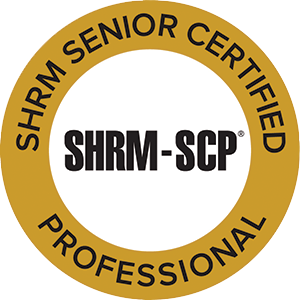All too often I work with a client who dreams of walking into the C-Suite for the first time as a Chief ________ Officer. A beautiful office, leadership of a whole team, and the glory of being in charge. But then, a year or two later, they let me know that they are overwhelmed, exhausted, and want to be anywhere but at work each day. What changed all of the sudden?
Burn out.
Burn out is the lack of motivation, emptiness, and exhaustion that comes with being overworked and under-rested.
So what leads to burn out? Let’s break it down:
Too Many Undelegated Tasks
In the book, The Art of Being Unreasonable, billionaire CEO Eli Broad says, “The inability to delegate is one of the biggest problems I see with managers at all levels.”
As an executive, your biggest jobs are figuring out strategy and taking responsibility. The good, bad, and ugly. It is okay to delegate work to your employees. Is it necessary for you to spend 6 hours designing the new company PowerPoint template, when Jeffrey from the brand team has extensive experience and would do a much better and faster job? Jeffrey could have the PowerPoint prepared and back to you for approval in 2 hours and you would be able to spend those 2 hours on projects that your specific efforts are needed on. Just because you can do something, doesn’t mean you should do it.
Not Enough No
Sometimes, delegation isn’t the answer, but instead a simple yet effective “no”. Not every opportunity or idea that comes across your desk needs to be considered. Often, newer executives struggle with turning down potential initiatives because they want to be seen as an out-going, go-getter who’s always up for something new. The problem with this is that so much time and money is spent on trying to organize new solutions that probably aren’t necessary. A great option is having a 3-4 person pipeline that new ideas can be sent through before they reach you. That way, you know that what is showing up on your desk has been thought through and approved by several individuals along the chain of command, and is an idea worth investing time in.
Lack of Innovation
The problem may often be the complete opposite for tenured executives. Often individuals who’ve sat in the C-Suite for years, or even decades, feel comfortable in their ways and aren’t open to new, innovative ideas. But consider this: does every customer ordering form really need to be entered manually into the company CRM? Why can’t the process be automated? Automation would reduce energy required, resources spent, and hours worked. While not every innovative idea needs to be considered, do recognize what your response pattern is to change. While a “no” is necessary and effective most of the time, especially if you are new and still getting your bearings, sometimes the best move an executive can make is saying “yes”.
Too Few Unplugged Periods
In the words of Rick Warren, “Divert daily, withdrawal weekly, abandon annually”. It is so important to take time for yourself to rest and recharge. Executives often become less productive because they are working too much. Your focus is frazzled, energy is shot, and mind is going a mile a minute. Decide now what time you are off the clock for the day. 5pm? 6? Establish that same rule, but for the week. At what period during the week are you going to withdrawal? And then consider the full year. When are you going to go completely off the contact grid so you can come back with your tank full and raring to go? It is important to note that you will need to assign one or two individuals to take over in your absence or possibly allow contact for emergencies for these individuals.
When it hits these moments, you need to be absolutely done and only focus on yourself, your family, and your friends. While you may play an important role in your business, your life is so much more than just your career. Enjoy every day of it.
___________
About Debi
Debi is a coach to high performers, leaders and business owners wanting to achieve more and grow beyond what they believe is possible. Known for her clarifying insight and a pragmatic approach, Debi brings her clients to the next step by asking the right questions during strategy development and supporting them during strategy implementation. With experience in management, recruitment and employee development for various industries, she has a wide scope of expertise and will confidently guide you towards a successful future in your career.
Ready to take your career to the next level?
Let’s chat. Schedule a call to discuss innovative solutions to your specific needs.





